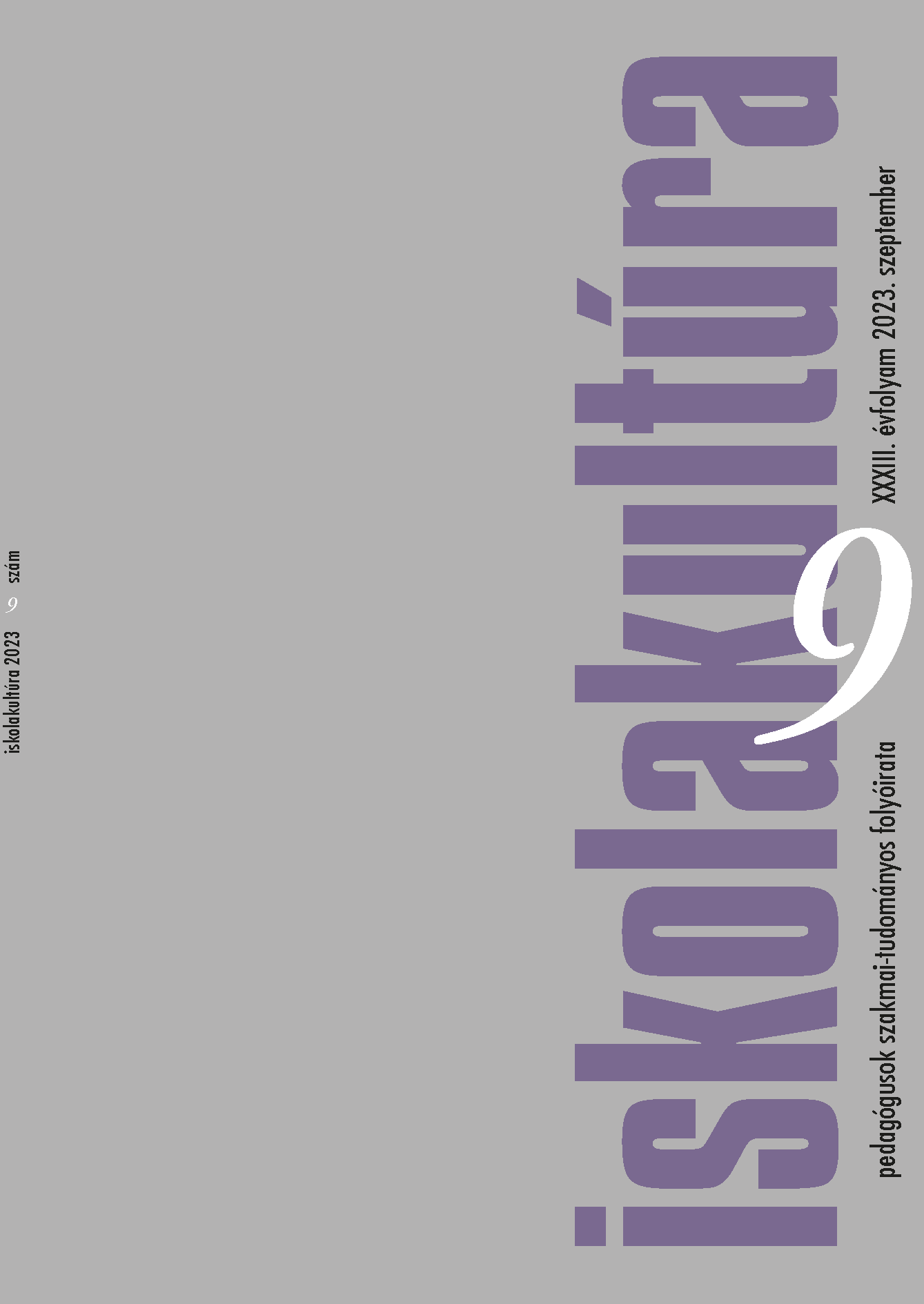Kompetenciafejlesztés és katonai képzés egy nemzetközi szakirodalmi áttekintés tanulságai
Main Article Content
Absztrakt
Írásom a katonai képzés (katonapedagógia) és a kompetenciafejlesztés keresztmetszetében elhelyezkedő, angol nyelvű tanulmányokból leszűrhető tanulságokat vizsgálja annak érdekében, hogy feltárja a kurrens trendeket, melyek a magyarországi kadétképzés szempontjából is hasznosíthatóak. A ScienceDirect adatbázisára alapozva végeztem szisztematikus irodalmi áttekintést: az elemzés alapjául szolgáló korpusz létrehozása után a kérdéskört tematizáló főbb topikokat mutatom be, illetve azokat a tudásterületeket, melyek kontextusában (a nemzetközi tudományos térben) megszülettek ezek az eredmények. Az eredmények egyben megmutatják a publikációs trendekbe való becsatlakozás hazai lehetőségeit is, hiszen az általam összegyűjtött tanulmányok között nincsen magyarországi vagy magyar intézményi affiliációval rendelkező szerző.
Letöltések
Article Details
Funding data
-
Innovációs és Technológiai Minisztérium
Grant numbers TKP2021-NVA-10
Hivatkozások
Madarász, T. (2013). Időszerű katonapedagógiai kérdések. Képzés és Gyakorlat, 11(1–4), 147–161.
Morgen-Owen, D. (2018). Approaching a Fork in the Road: Professional Education and Military Learning. https://warontherocks.com/2018/07/approaching-a-fork-in-the-road-professional-education-and-military-learning/
Allen, P. E., Armstrong, M. L., Saladiner, J. E., Hamilton, M. J. & Conard, P. L. (2014). Opportunities, Hurdles, Solutions, and Approaches to Transition Military Veterans Into Professional Nursing Programs. Journal of Professional Nursing, 30(6), 474–480. DOI: https://doi.org/10.1016/j.profnurs.2014.03.007
Baker, E. L. & O’Neil, H. F. (2003). Evaluation and research for technology: Not just playing around. Evaluation and Program Planning,26(2), 169–176. DOI: https://doi.org/10.1016/S0149-7189(03)00008-9
Boyce, L. A., Zaccaro, S. J. & Wisecarver, M. Z. (2010). Propensity for self-development of leadership attributes: Understanding, predicting, and supporting performance of leaderself-development. The Leadership Quarterly, 21(1), 159–178. DOI: https://doi.org/10.1016/j.leaqua.2009.10.012
Brilingaitė, A., Bukauskas, L. & Juozapavičius, A. (2020). A framework for competence development and assessment in hybrid cybersecurity exercises. Computers & Security, 88, 101607. DOI: https://doi.org/10.1016/j.cose.2019.101607
Burmaoglu, S. & Sarıtas, O. (2017). Changing characteristics of warfare and the future of Military R&D. Technological Forecasting and Social Change, 116, 151–161. DOI: https://doi.org/10.1016/j.techfore.2016.10.062
Fernandez-Osorio, A. E., Miron, M., Cabrera-Cabrera, L. J., Corcione-Nieto, M. A. & Villalba-Garcia, L. F. (2023). Towards an effective gender integration in the armed forces: The case of the Colombian Army Military Academy. World Development, 171, 106348. DOI: https://doi.org/10.1016/j.worlddev.2023.106348
Garofano, J. (2008). Effective Advice in Decisions for War: Beyond Objective Control. Orbis, 52(2), 238–254. DOI: https://doi.org/10.1016/j.orbis.2008.01.005
Hăhăianu, F. & Manasia, L. (2014). Socio-emotional Intelligence for Successful Higher Military Education. A Case Study Approach. Procedia - Social and Behavioral Sciences, 142, 389–395. DOI: https://doi.org/10.1016/j.sbspro.2014.07.697
Heyler, S. G., Armenakis, A. A., Walker, A. G. & Collier, D. Y. (2016). A qualitative study investigating the ethical decision making process: A proposed model. The Leadership Quarterly, 27(5), 788–801. DOI: https://doi.org/10.1016/j.leaqua.2016.05.003
Juhary, J. (2015). Understanding Military Pedagogy. Procedia – Social and Behavioral Sciences, 186, 1255–1261. DOI: https://doi.org/10.1016/j.sbspro.2015.04.104
Kamarási V. & Mogyorósy G. (2015). Szisztematikus irodalmi áttekintések módszertana és jelentősége. Segítség a diagnosztikus és terápiás döntésekhez. Orvosi Hetilap, 156(38), 1523–1531. DOI: https://doi.org/10.1556/650.2015.30255
Kočote, I. & Smirnova, T. (2016). Aspects of Military-related Text Translation from English into Latvian. Procedia - Social and Behavioral Sciences, 231, 107–113. DOI: https://doi.org/10.1016/j.sbspro.2016.09.078
Lester, P. B., Lester, G. V. & Saboe, K. N. (2018). Resilience within the workplace: Taking a cue from the U.S. military. Organizational Dynamics, 47(4), 201–208. DOI: https://doi.org/10.1016/j.orgdyn.2018.01.005
Mészáros, A. & Szalóki, R. (2022). The need and opportunities for developing emotional intelligence in education. Opus et Educatio, 9(4), 300–310. DOI: https://doi.org/10.3311/ope.526
Miller, J. W. & Tucker, J. S. (2015). Addressing and assessing critical thinking in intercultural contexts: Investigating the distance learning outcomes of military leaders. International Journal of Intercultural Relations, 48, 120–136. DOI: https://doi.org/10.1016/j.ijintrel.2015.07.002
Njelezi, M. T. (2023). Education in values: An analysis of teachers’ role in Mozambican military higher education. Heliyon, 9(6), e17226. DOI: https://doi.org/10.1016/j.heliyon.2023.e17226
Peveri, J. (2022). The wise, the politician, and the strong man: Types of national leaders and quality of governance. Journal of Comparative Economics, 50(4), 849–895. DOI: https://doi.org/10.1016/j.jce.2022.06.001
Rokvić, V. & Stanarević, S. (2016). Toward gender and LGBT equality in the Serbian armed forces. Women’s Studies International Forum, 55, 26–34. DOI: https://doi.org/10.1016/j.wsif.2016.02.003
Scultetus, A. H., Villavicencio, J. L., Koustova, E. & Rich, N. M. (2006). To Heal and to Serve: Military Medical Education Throughout the Centuries. Journal of the American College of Surgeons, 202(6), 1005–1016. DOI: https://doi.org/10.1016/j.jamcollsurg.2006.02.010
Tenorth H.-E. (2018). Tényekre alapozott oktatáskutatás versus a pedagógia mint kultúratudomány – egy újabb „paradigmaharc” a tudományos pedagógiában. Pedagógiatörténeti Szemle, 4(3–4), 23–44. DOI: https://doi.org/10.22309/ptszemle.2018.3.2
Tontz, P. A., Reyes, J. & Taylor, Z. (2023). Impact of military nurse instructor on the academic performance of eligible corpsman in an online NCLEX-PN training program. Teaching and Learning in Nursing. DOI: https://doi.org/10.1016/j.teln.2023.06.010

